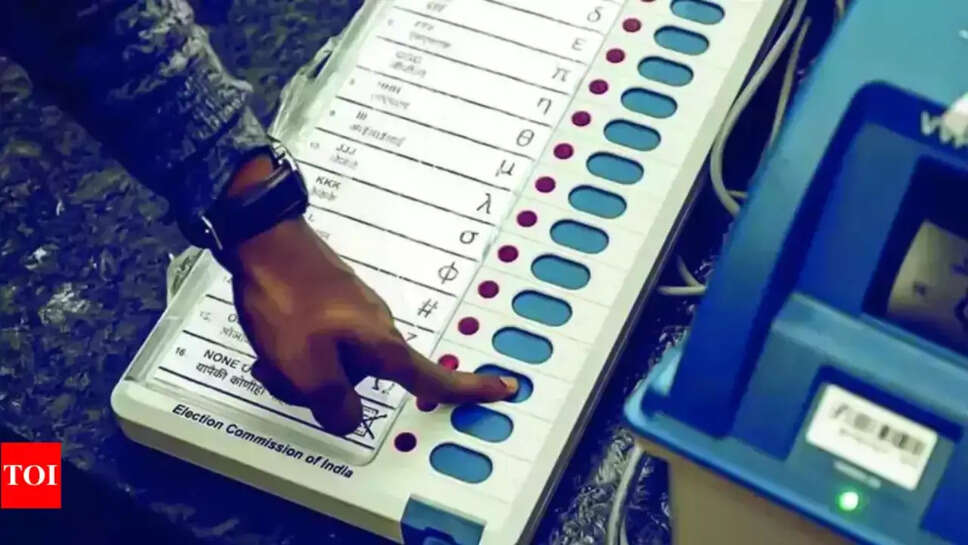As Fraud Allegations Fly, Pune Set for EVM Verification and Dry Runs

As political tempers flare over alleged electoral fraud in Maharashtra, authorities have taken a decisive step to address public concerns by approving Electronic Voting Machine (EVM) verification and mock polling in key constituencies, particularly across Pune. The move comes amid heightened scrutiny from opposition parties and civil society groups demanding greater transparency and accountability in the voting process.
Pune, one of Maharashtra’s most prominent urban centres, has been thrust into the spotlight as it prepares to implement this large-scale EVM testing initiative—marking a rare instance of proactive electoral machinery testing in the middle of a growing controversy.
🗳️ The Heart of the Controversy
The root of the current political turmoil lies in allegations of vote tampering and malfunctioning EVMs during the recent Lok Sabha and state elections. While official reports claim that polling was largely smooth and free from serious technical glitches, opposition leaders have cast doubts on the legitimacy of the electoral process, pointing to irregularities in vote counts, mismatch in voter data, and suspicious trends in select booths.
Pune, being both politically significant and technologically inclined, has emerged as the ideal pilot region for re-establishing public trust in the voting system. The district administration, under the guidance of the Election Commission of India (ECI), has finalized plans for a mock poll and in-depth verification process across several booths.
🛠️ What the EVM Verification Will Involve
The EVM verification process will include multiple layers of checks. First, a 5% random sample of voting machines will be chosen from various polling stations. These machines will undergo functionality testing to ensure they record and display votes accurately. Alongside this, engineers from Bharat Electronics Ltd. (BEL) and Electronics Corporation of India Ltd. (ECIL)—the manufacturers of EVMs—will be present to oversee and certify machine integrity.
The Voter Verifiable Paper Audit Trail (VVPAT) systems will also be tested simultaneously. These printers generate a slip confirming the vote cast by the user, offering a physical layer of verification for electronic votes. The correlation between VVPAT slips and the electronic tally is expected to be closely monitored during the mock polling.
🎯 Objectives of the Mock Polls
The mock polls, scheduled in key urban and semi-urban booths across Pune, aim to simulate the actual voting experience. Each mock poll will involve dummy candidates and test voters to evaluate machine response, voter flow, and vote registration accuracy. The results of these mock exercises will be tabulated and compared with VVPAT outputs to spot any discrepancies.
The core objectives are:
-
To build voter confidence in the integrity of the electoral system
-
To detect and eliminate any technical malfunctions in the EVMs
-
To demonstrate transparency and accountability in the polling process
-
To reduce misinformation around machine-based vote manipulation
Political Reactions: Trust or Tension?
The announcement has led to mixed reactions from political stakeholders. Opposition parties, especially those involved in raising the initial fraud allegations, have cautiously welcomed the move. Many see it as a partial victory in their fight for electoral reform, although some claim the verification should have been extended statewide.
On the other hand, ruling parties argue that such tests reinforce what they have maintained all along—that EVMs are tamper-proof and the allegations are politically motivated. They believe the exercise will debunk conspiracy theories and help the electorate move forward with confidence in the democratic process.
Local leaders in Pune across all parties have pledged to cooperate with election officials during the trial runs, with some even volunteering representatives to observe and report on the proceedings.
🧩 Challenges Ahead
While the initiative is commendable, logistical and operational hurdles remain. Ensuring a fair and tamper-proof environment during the mock polls will require tight security, technical readiness, and impartial observers. Any lapses during the testing itself could worsen public trust and open the door for further speculation.
Another challenge lies in public communication. Voters must clearly understand the intent and scope of the mock polls—that these are not re-elections or re-polling, but confidence-building measures.
Election officials in Pune have also been instructed to create awareness through campaigns, public demonstrations, and local meetings so that residents fully grasp the purpose of EVM and VVPAT verification.
📍 Why Pune Matters
Pune has often been at the crossroads of electoral reforms. With its blend of urban voter sophistication and political volatility, the city serves as a microcosm of India’s larger democratic experiment. The findings from Pune’s mock poll exercises could inform future election protocols, influence nationwide policy on EVM auditing, and even shape public discourse around digitized democracy.
Additionally, the city’s history of active citizen engagement and vigilant civil society ensures that the outcomes of this verification process will be thoroughly scrutinized and reported.
🔍 Way Forward: A Step Toward Electoral Transparency?
If successful, the EVM verification and mock polling drive in Pune could set a national benchmark. In a time when public institutions are under increasing pressure to prove their legitimacy, such initiatives represent a welcome shift towards transparency and accountability.
However, the process must remain neutral, technical, and free from political grandstanding. Election authorities have a narrow window to restore confidence and must ensure that the exercise is not reduced to mere optics.
Whether this results in long-term structural change or fades as a symbolic gesture remains to be seen. What is clear is that Maharashtra’s electoral credibility is under the microscope, and Pune’s readiness to put its machines to the test may help the state—and the country—take one step closer to a cleaner, more trustworthy democratic process.
